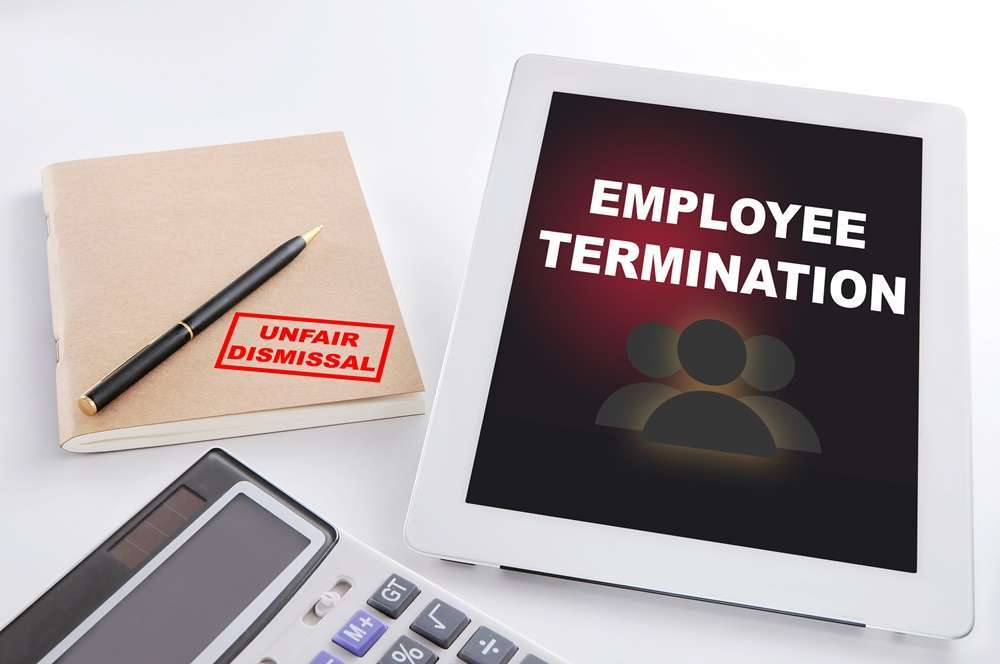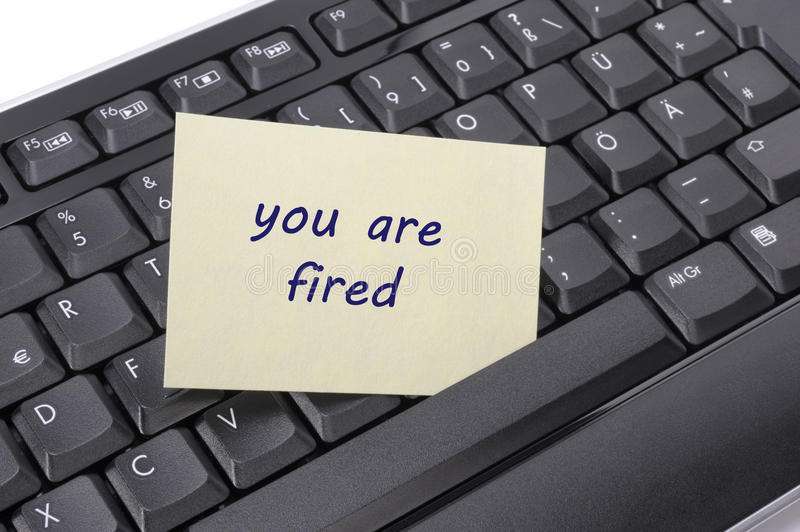Sue Your Employer, 14 reasons to do so What do i do?

Employees can sue their employer for many different situations. The reason I’m writing this article is many employers ring us to want to sue. In turn lodge a complaint for unfair dismissal. In some circumstances for a myriad of reasons you cannot proceed with this process, under the Fair work Commission regime (over the salary limit, out of time, more the 21 days to lodge a claim, haven’t been there long enough, the unfair dismissal claim will not get me the level of compensation sort, etc). Many employees therefore think they no not a claim, when in fact they do. The article is to give your options, prompters, suggestions, alternatives.
I want to point out early A Whole New Approach, the owners of this web site are not lawyers, (nor do we want to be) but leading high profile workplace advisors and representatives. This not legal advice but leading commentary to assist you in coming to an informed decision.
Sue Your Employer, 14 reasons to do so
Sue Your Employer Its Complicated
First point is in trying to state all the reasons to sue your employer feels like an impossibility. There so many individual scenarios , circumstances, and outcomes sort, its complicated, so I have put them into categories. This is neither a complete nor exhaustive list of the types of complaints you can pursue. Regardless, here’s a round up of these common reasons to issue a complaint against your employer.
Employees can issue a complaint for everything from recruitment procedures to dismissal. Companies and their representatives might complain that nothing is off limits, but the fact of the matter is that employees can sue because their employee rights have been breached, one way or another. The Fair work Commission and the Fair work Ombudsman work hard to protect employees from unfair dismissal, unlawful dismissals (general protections claims) employment discrimination, retaliation, false redundancies, disputes, etc.
Based on these laws, employees are entitled to pursue their employee rights. While complaints occur for many different scenarios, here are fourteen reasons to consider issuing a complaint against your employer for workplace violations.
Fight for your rights under the law, find out when to sue your employer.
1. Unlawful interview questions
All job applicants should be treated equally within the interview process. Females often report that they are subjected to interview questions that aim to find out if they have children or plan to have children. Inappropriate questions about do you have a boyfriend?, girlfriend?, are you dating?, under the guise of they want to know that you can do overtime. Comments about your appearance, to see how you react. Prospective employees with obvious disabilities might receive questions that focus on their disability rather than their ability to perform the job.
These types of situations are unlawful and discriminatory especially if applicants believe they didn’t receive the job due to their gender, disability, rejection of the employers advances, or other legally protected categories under the FWC Act, or Equally Opportunity Act in the relative state.

2. Unfair disciplinary process
You are entitled to a “fair go”. In the heat of the moment, an unfair discipline process can mean the employee has rights to challenge a warning they have received, to not be abused, to receive the required training. In many instances employees recognize when they’ve been disciplined differently than similarly situated coworkers. When a manager or supervisor fails to follow company policy for discipline, this can create more problems. You have rights to challenge, or reify the situation at the Fair work Commission, (known as a General Protections F8C application)
All employees should be aware of the discipline policy and every employee should face the same discipline for specific behavior. Its referred to as “parity in the workplace”. Be aware of the test for discrimination is “different or less favourable treatment”.
If you get a warning you don’t agree with, don’t throw it in the bin or ignore it, write back respectfully challenging it. I had a Deputy President of the Fair work Commission point out to in a case. “if the employer is good enough to put the warning in writing, then the employee should be good enough to write back” fair enough. Then also you have a record of you challenging your warning for future refence if the workplace situation gets worse.
3. Dismissal
In a country protected by the Fair work Act, and every state having their own industrial relations commission and unfair dismissals regimes (except Victoria), unlawful / illegal termination might seem impossible. However it still happens. Sometimes employees believe that they had a verbal agreement, promising continued employment, or that they were terminated due to their legally protected class.
Reasons to Sue for Dismissal / Termination
- Lack of reason for dismissal. (no valid reason)
- Dismissal for poor performance without procedural fairness
- Serious misconduct, which is misconceived, or not valid
- Investigation is delayed to the point, that with the flux of time, you simply just not there.
- Managers failing to follow company policy, not given “a fair go’
- Dismissed for Illness.
- Family responsibilities
This list is far from exhaustive, I’m just giving you a insight for you to start working out if you have a claim, be aware of the very strictly enforced 21 days to lodge a unfair dismissal claim or a unlawful dismissal claim (general protections). Give us a call to discuss, or send us a email, discuss your options, its free.

4. Unlawful Decisions about Medical Requests
The rules surrounding medical leave can seem like a black hole for managers and employers because it’s so easy to misstep and gain legal attention. You are entitled to sick leave, both paid and unpaid, they are limits on the amount of sick leave your entitled to, click here, to see what your entitled to.
Injuries in the workplace and turn workers compensation claims, is a world of its own, get a works comp lawyer in at the earliest stage, I’ve already in this article stated, the insurance companies managing this scheme in the various states, are cunning to as they come.
5. Award Wages, Minimum Standards
The award system is set by the Fair work Commission and enforced by the Fair work Ombudsman outlines the rules of which employees receive overtime pay, penalty rates and conditions and which employees do not. Determining which employees are eligible is difficult, and companies routinely get it wrong. This can be an expensive mistake. Meanwhile, employers and employees cannot negotiate different overtime pay than what the law stipulates.
An employee who has been incorrectly categorized should explore the legal solutions available. Wage theft is a huge issue as well, if not sure on your state of rates call the Fair work Ombudsman
6. Docking Pay
Employers have little legal room for reducing how much employees are paid. Discipline shouldn’t usually mean docked pay. If you make a mistake or cost the employer money, then your should possibly get a warning or in extreme cases get dismissed. Not have the cost taken out of your pay. When the employer makes extra profit, does he share this with you?
Employees do not have the right to waive their overtime pay, and employers who allow this can face legal action, particularly by the Fair work Ombudsman.

7. Injury In The Workplace
On-the-job injury is a risk that employers must face, but workers’ compensation insurance usually is enough to cover employee injury. However, when an employer mismanages a personal injury situation, legal action can be a natural repercussion. Employees have a right to a safe workplace, and when it can be proved that the employer was negligent in some way, employees have a case.
Workers Compensation is a world of its own, I have a saying “only the well funded, severely injured and the truly hardy prevail”, everybody gives up at some stage. The insurance companies are not there to take care of you, they are to manage your claim, keep cost low, get you back to work, its it.
8. Employment Discrimination
Discrimination is a buzzword in society. In the last few years, employment law has better defined what actions and protected classes are secured from discrimination. While obvious discrimination is easy to recognize and respond to, subtle discrimination can also be ground for a complaint. Obvious acts of discrimination include denying employment or disciplining due to protected class. Its more covert these days, sometimes its more about what’s not said, than what is said, its about isolation, exclusion.
To win an employment discrimination case, you must be able to prove four things. First, you must be part of the legally protected classes. Second, you must be able to perform your job well. Third, you must show what negative employment action you’ve suffered, Fourth, that the negative employment action was prompted by your protected class.
9. Workplace Harassment, Anti-Bullying Complaint
An occasional comment or random offensive joke rarely constitutes harassment. However when offensive remarks and rude jokes happen without break, this is workplace harassment. Employees often cite harassment as part of a hostile work environment complaint.
The test of a anti-bullying complaint is it must be repeated, and unreasonable management action. You can lodge a claim for this at the FWC (F72 Application) While harassment can occur to any employee, it often has to do with the employee’s protected status, this may indicate discriminatory behaviour by the employer.

10. Sexual Harassment (definitely sue your employer)
Unwelcome sexual advances have no place at work. When an employee deals with sexual harassment from a employer, director, partner, manager, or supervisor, they also face the very real chance of losing their job or suffering negative employment action when refusing the advances.
File a complaint (in writing, so you have a record of the complaint) with your human resources department or notify a neutral supervisor about the situation. If nothing is done, you may have a case. Alternately if you find you are now mistreated, bullied, your job threatened, this is referred to as victimisation. Do not suffer in silence, call us.
11. Retaliation
A repercussion of an employee pursuing his or her legal rights by filing a complaint internally or with a federal or state agency is sometimes retaliation by the employer. Retaliation can be demotion, harassment, excessive schedule changes, reduction in hours, being relocated, and in many cases dismissed, etc. However employees who experience retaliation are protected by the law and can add employer retaliation to their complaint against their employer.
General protections claims in many cases is about your complaints, you have “excised a workplace right’, and are now adversely effected by it. you have rights, its how you excise them. Give us a call to discuss.

12. Defamation
Although this is a good reason to sue your employer, you need to be sure that you understand what true defamation is. Defamation only occurs when an knowing untrue statement is made about an employee that results in the employee losing employment opportunities and potentially pay as well.
Rude or mean remarks that do not affect the employee’s career in any way are not enough for a defamation lawsuit. Defamation cases are expensive, its not like debts only want $4000 so it belongs in a small claims tribunal, that’s not the case in defamation, it straight to the supreme court. Seek advice from an experienced barrister before you go down this road.
13. Violating the Law
Sometimes employers force employees to unknowingly or knowingly violate federal or state law. What will you do in order to keep your job?, crib a bit here, a bit there. This is particularly pertinent around the issues of OH&S, lies to customers and suppliers that you don’t realize have unintended consequences.
Employees who recognize that they are being pressured into lying on the behalf of their employer could become liable as well for the illegal behavior. Job security should never be based on illegal activity. Therefore, employees should seek the protection of being a whistleblower, or take the matter to the Fair work Commission, that’s what they are there for.
14. Stalking, Surveillance
With the rise of technology and social media, employers are installing more and more video cameras in the workplace, and monitoring their employees on social media. You are entitled to privacy. The Employer is entitled to know what’s going on, its their business, their premises. Employers have been previously jailed for putting cameras in toilets. But can they put them in the lunch room? or amenities facility. Before it was just video, not it includes with newer technology sound. The are recording your every sound.
When you go to the car park, you don’t mind being under surveillance, its could be for safety, but listening to every word when your on the mobile phone or talking to a co worker? Its almost a form of voyeurism, I’ve seen some employers become addicted to surveillance of employees, its creepy, it it a sickness? Call us to discuss this, the consequences can be serious.

Sue Your Employer, 14 reasons to do so
I hope you enjoyed the article and found it informative. Self awareness of what’s going on in the workplace is important. We are A Whole New Approach, we are not employment lawyers but the nations leading workplace advisors and commentators. Have a question? Just want some information?, termination of employment?, All Fair work Australia (FWC) matters, something we are passionate about is diversity in the workplace?, dismissals, whatever!.
Give is a call, advice is free, prompt, confidential 1800 333 666. We work in all States, Victoria, NSW, QLD, Tas, SA, WA, NT
Articles similar to Sue your employer 14 reasons to do so.
Its Trash Day, (your dismissal) Employers Playing God
FAQ’s, click here






